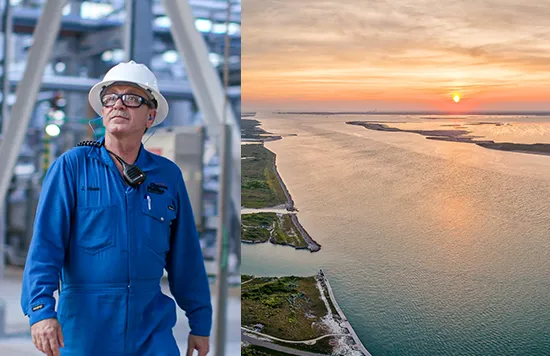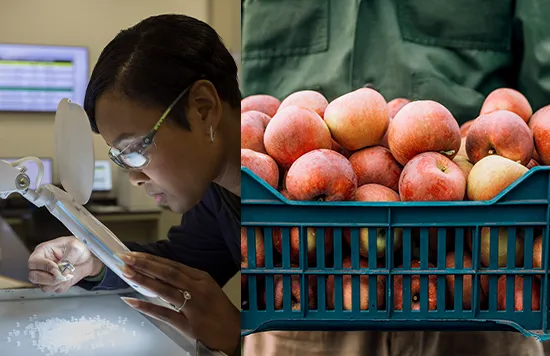Advanced Recycling and Feedstocks of the Future
We believe all recycling technologies are needed to reduce plastic waste and increase reuse of these valuable materials. CPChem is proud of its efforts in both traditional and advanced recycling, and the company remains dedicated to expanding circularity and developing circular products. CPChem is also exploring opportunities with bio-based feedstocks, and how lower carbon feedstocks may reduce our product carbon footprint.
Driving Development of Circular Products
The chemistry behind products like plastic packaging has evolved alongside consumers’ growing need for high-performance, quality goods. New infrastructure and technology are needed to repurpose difficult-to-recycle plastics in an economical and scalable manner.

What are “difficult-to-recycle” plastics?
Picture a bag of dog food. You might not be able to tell by holding it, but bags like these often contain several different layers of plastic, each serving a specific purpose. Some layers offer protection from moisture and contaminants while others provide strength, flexibility and serve as product labeling. While these special layers offer impressive levels of customization and protection, it is the same layers that make these products difficult to recycle through traditional means.
Advanced recycling is a step closer to a circular economy, where difficult-to-recycle plastics like plastic films and multi-layered food packaging can be used, recovered and recycled again and again. Polymers produced via advanced recycling are chemically identical to their fossil-based counterparts, allowing their use in highly regulated applications.
Pyrolysis is one example of an advanced recycling technology. Through the pyrolysis process, plastics that were once difficult-to-recycle can be converted to pyrolysis oil and used as feedstock to produce circular products like CPChem’s Marlex® Anew™ Circular Polyethylene. CPChem hopes to accelerate the developing field of advanced recycling by increasing its support and investments in companies that produce pyrolysis oil. Enhancing production capacities of companies that supply pyrolysis oil also enhances CPChem’s ability to contribute to a circular economy for plastics.
Made using advanced recycling technology and certified through the ISCC PLUS process, Marlex® Anew™ Circular Polyethylene is a cutting-edge product that embodies our commitment to helping the world find sustainable solutions and eliminate plastic waste in the environment. By 2030, we aspire to reach an annual production volume of one billion pounds of Marlex® Anew™ Circular Polyethylene. In only two years since becoming commercially available, sales of our first circular product have experienced significant growth, indicating strong demand for high quality circular products as we work toward our 2030 target.
Our Journey to 1 Billion
Banding Together for Biodegradable Plastics
CPChem is collaborating with Georgia-based biotechnology company, Danimer Scientific, to explore and develop high-volume biodegradable plastic products using their Rinnovo® P3HP biopolymers.


